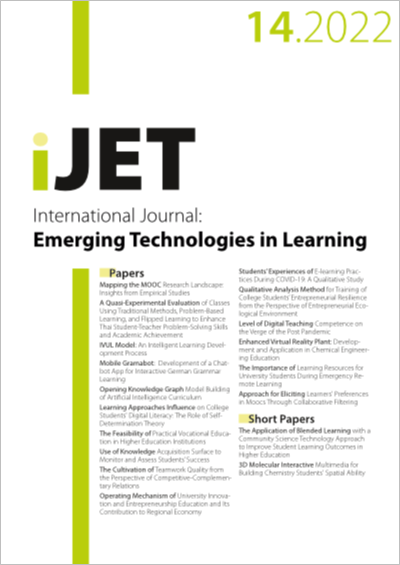Students’ Experiences of E-learning Practices During COVID-19: A Qualitative Study
DOI:
https://doi.org/10.3991/ijet.v17i14.30393Keywords:
E-learning, experience, Interpretative Phenomenological Analysis (IPA), COVID-19, University Students, BangladeshAbstract
COVID-19 pandemic has disrupted schooling globally. Affecting millions of students, the conventional face-to-face (F2F) education system has been replaced by e-learning overnight. As the advantages, disadvantages, and technical challenges of this abrupt transformation were already well-documented, this study aimed to intensely scrutinize university students' experiences of e-learning practices in this new normal situation. Methods: Adopting the Interpretative Phenomenological Analysis (IPA), a smaller sample of respondents (N=25) was observed to gain deeper insights using semi-structured interviews. Data were analyzed and interpreted through thematic analysis. Findings revealed that most of the students have had unfavorable experiences with e-learning. The majority of students feel that e-learning has ruined their social relationships by isolating them from their peers and instructors. A significant number of students were observed to be anxious about their future due to unstable financial status, poor learning outcomes, and unfair evaluation processes. Moreover, poor self-esteem, anxiety, and depressive symptoms have been observed among a significant portion of the students. The overall findings of this study are meant to assist stakeholders in taking the necessary steps to address the aforementioned issues and ensure an improved learning experience, particularly in an e-learning environment.
Downloads
Published
How to Cite
Issue
Section
License
Copyright (c) 2022 Fouad Hossain Sarker

This work is licensed under a Creative Commons Attribution 4.0 International License.



